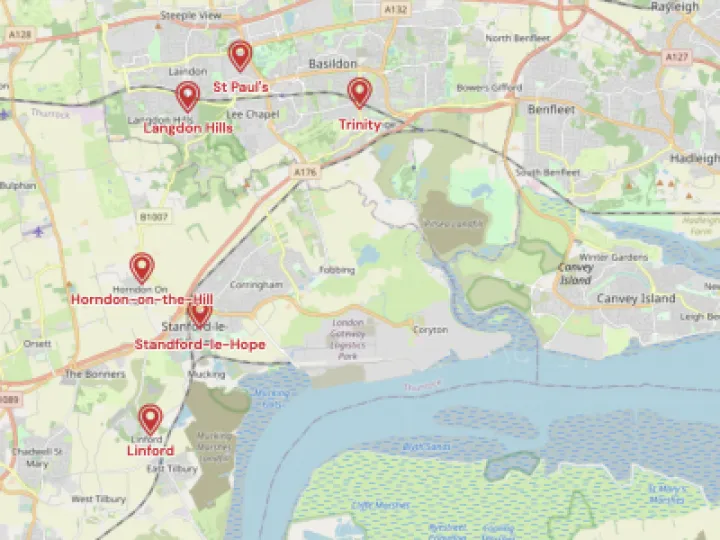GOD IN LOVE UNITES US: The Report of the Marriage and Relationships Task Group 2019

The Methodist Church has not fully reflected on the theology of marriage and relationships since 1992 although work has been carried out by several Task Groups since then. The Marriage and Relationships Task Group set up in 2014 identified the need for an update and to revisit the 'definition' of marriage and the current Task Group (set up in 2016) have been looking at this. The 2018 Conference directed that, instead of a statement, the Task Group should bring a report on these matters which could include any proposed changes to Standing Orders, were the definition of marriage to change.
The following is only a summary. Read the full report
Introduction:
Relationships, sex and marriage are important issues for everyone. To speak on these topics is both a challenge and an opportunity. As part of its calling and mission, the Methodist Church must engage with the reality of how people are living today. Looking at these relationships raises questions about the nature of marriage, cohabitation, living in relationships and living with different sexualities. These questions cut right to the very identity of who we are, and who those we love are and can be.
The group looked at how we can best live faithfully as Christians in these relationships today. As Methodist people, we differ in how we answer this question. Yet, we are called to be in loving communion with one another. What we share in loving God and in knowing we are loved by God, is much greater than anything that divides us.
Since 1993, the Methodist people have been encouraged to be on a "Pilgrimage of Faith". This has challenged us to listen and to learn from each other on issues of sexuality, relationships and faith, and to move on together. Sometimes, we find it hard to understand why others do not see things as we do and hurt has been caused to many people along the way. Yet as the Methodist people, we have chosen to journey on together and find ways of living with contradictory convictions.
There is a need to be able to talk better together about relationships, marriage and sexuality. This has come most clearly from the Methodist young people at their annual gathering, 3Generate.
The Marriage and Relationships Task Group is a living, worked example of the Pilgrimage of Faith, starting at different places and with some disagreement. The members grappled with their contradictory convictions and found God meeting them in each other.
Section 0.4 of God in Love Unites Us sets out in detail what is considered in the report starting with examining where relationships fit into the understanding of what it is to be human, exploring how God created us all to be fundamentally relational beings, and the part our sexuality plays in that.
Recommendations:
That the Conference receives the Report and commends it to the Connexion for study and prayerful discussion.
The Conference adopts the recommendation that it affirm the following summary understanding of the principles or qualities of good relating:
All significant relationships should be built on self-giving love, commitment, fidelity, loyalty, honesty, mutual respect, equality and the desire for the mutual flourishing of the people involved.
It is through that self-giving, rather than through self-seeking, that the self flourishes and begins to experience life in all its fullness (though it needs to be recognised that the universal Church's historic emphasis on self-sacrifice has often been misunderstood and misused eg by abusive partners in a way that is destructive of the wellbeing of the ones abused often women).
The Conference adopts the recommendation that it affirm the following summary understanding of cohabitation:
The Church recognises that the love of God is present within the love of human beings who are drawn to each other, and who enter freely into some form of life-enhancing committed relationship with each other, whether that be through informal cohabitation or a more formal commitment entered into publicly.
As a Church we wish to celebrate that the love of God is present in these circumstances, even if that grace is not responded to or even discerned by the people concerned.
The Church has an important calling, therefore, to point to the presence of God's love within such relationships, and to encourage people to respond to it in the renewing and deepening (by whatever means) of their commitment.
The Conference directs that the Methodist Council, in consultation with the Faith and Order Committee, ensure resources be produced for the celebration of civil partnerships.
The Conference directs the Faith and Order Committee to explore producing liturgical resources and relevant guidance for use at the ending of a marriage.
The Conference adopts the recommendation that the Methodist Church offer more support for marriage, alongside other committed relationships; and directs that the Methodist Council ensure resources be produced to help provide this support drawing on the theological insights of the purposes, qualities and patterns for good relating set out in the report.
The Conference adopts the Guidance on the Understanding of Marriage and directs that it be included in the Guidance section of CPD.
G1 The Methodist Church welcomes everyone, whether or not a member, who enquires about an intended marriage in any of its places of worship. It looks for an openness to God in them, not necessarily a developed understanding of the Christian faith.
G2 Legally, marriage is a contractual relationship entered into by two people who make solemn vows and commitments to each other, without either the nature of the marriage or the nature of the commitments being further defined under the law of the land. In the understanding of the Methodist Church, marriage encompasses that but is also deeper and richer. The Methodist Church believes that marriage is a covenant relationship between two people, within God's covenant of love with them. Through it, they may experience, explore and express God's gracious love.
G3 The Methodist Church believes that marriage is an exclusive relationship, freely entered into with a life-long intention of uniting two people in body, heart, mind and soul in ways that are appropriate to each partner. In it, God's Spirit enables both partners to know the security of love and care, bringing to each other comfort and companionship, enrichment and encouragement, tenderness and trust. Through such marriage children may be nurtured, family life strengthened, and human society enriched.
G4 The Methodist Church recognises that amongst its members different views are held about the interpretation of the Bible and Christian tradition as to whether those being married may be any two people, or may only be a woman and a man. The Methodist Church has decided to respect and make practical provisions for both positions.
G5 A marriage service or a service of blessing of a marriage that has been previously solemnised may only be conducted in a Methodist place of worship when it can be shown that the requirements of the legislation in the appropriate jurisdiction have been met.
G6 Where there is a desire to use places of worship for marriage services or for services of blessing for a marriage previously solemnised, the managing trustees of those premises should actively consider whether they wish to do so solely for marriages of mixed-sex couples, or for marriages of same-sex couples as well as mixed-sex couples. The managing trustees should re-consider the question of the use of the place of worship for such services every five years or sooner.
G7 Where the managing trustees wish to use a place of worship for marriage services, and the legislation of the relevant jurisdiction requires church buildings or personnel to be registered or authorised for the solemnisation of marriages, the managing trustees should take the relevant steps to comply.
For the purposes of section 26A of the Marriage Act 1949 (as inserted by section 4(1) of the Marriage (Same Sex Couples) Act 2013) the Conference consents to the marriage of same sex couples and accordingly authorises the managing trustees or, if none, the trustees, of any Methodist building in England and Wales capable of registration under section 43A of the Marriage Act 1949 (as amended by paragraph 1 of Schedule 1 to the Marriage (Same Sex Couples) Act 2013) to register that building under that section.
What Happens Next?
The full Marriage and Relationships paper will be put before Conference and a vote will be taken. If the Conference commends it to the Connexion, it is anticipated the report will be presented to Synods from September onwards with the consultation period lasting until Spring 2020. Synods will vote on the proposals between in the Spring of 2020 with a report collating all the votes going before the 2020 Methodist Conference.
Quick Links
Get In Touch
c/o The Methodist Centre
Lansdowne Road
Bayston Hill
Shrewsbury
SY3 0HZ

